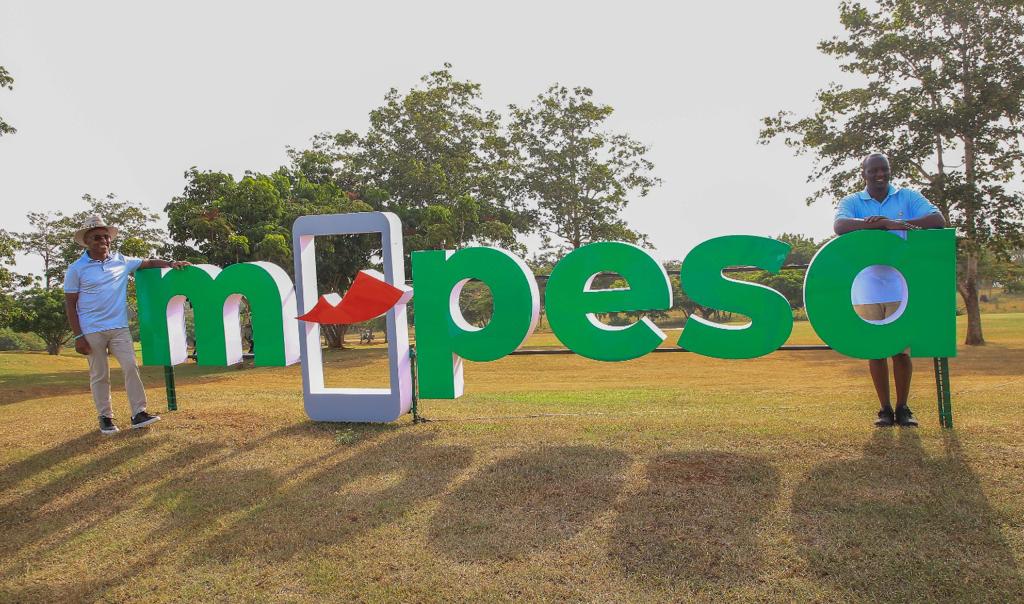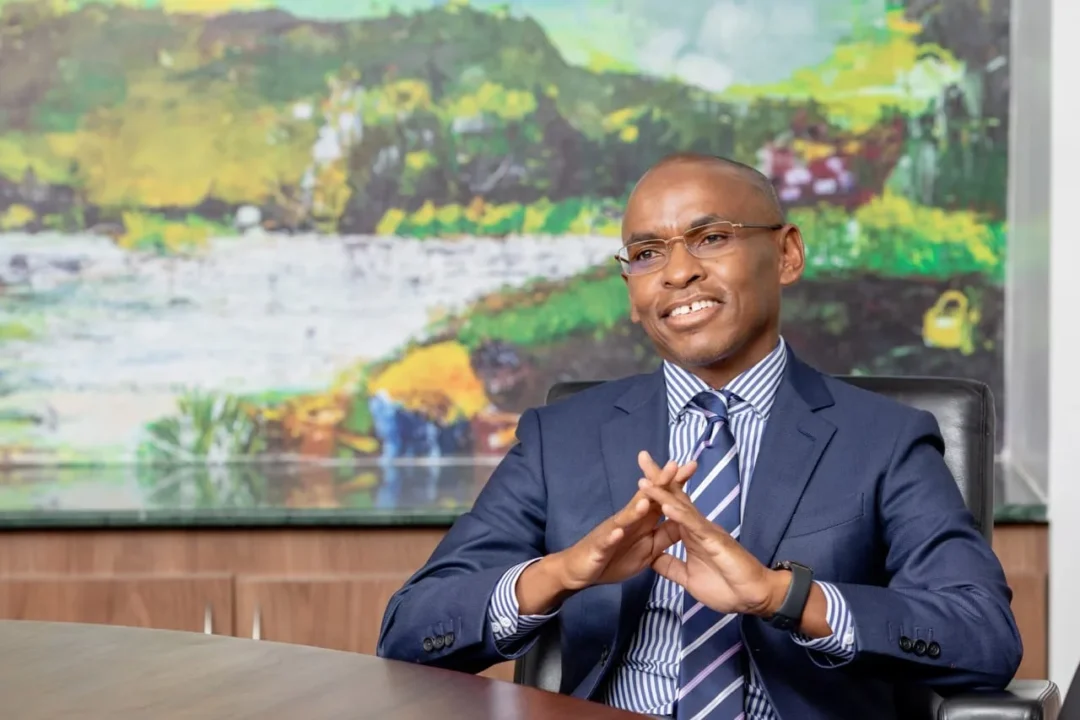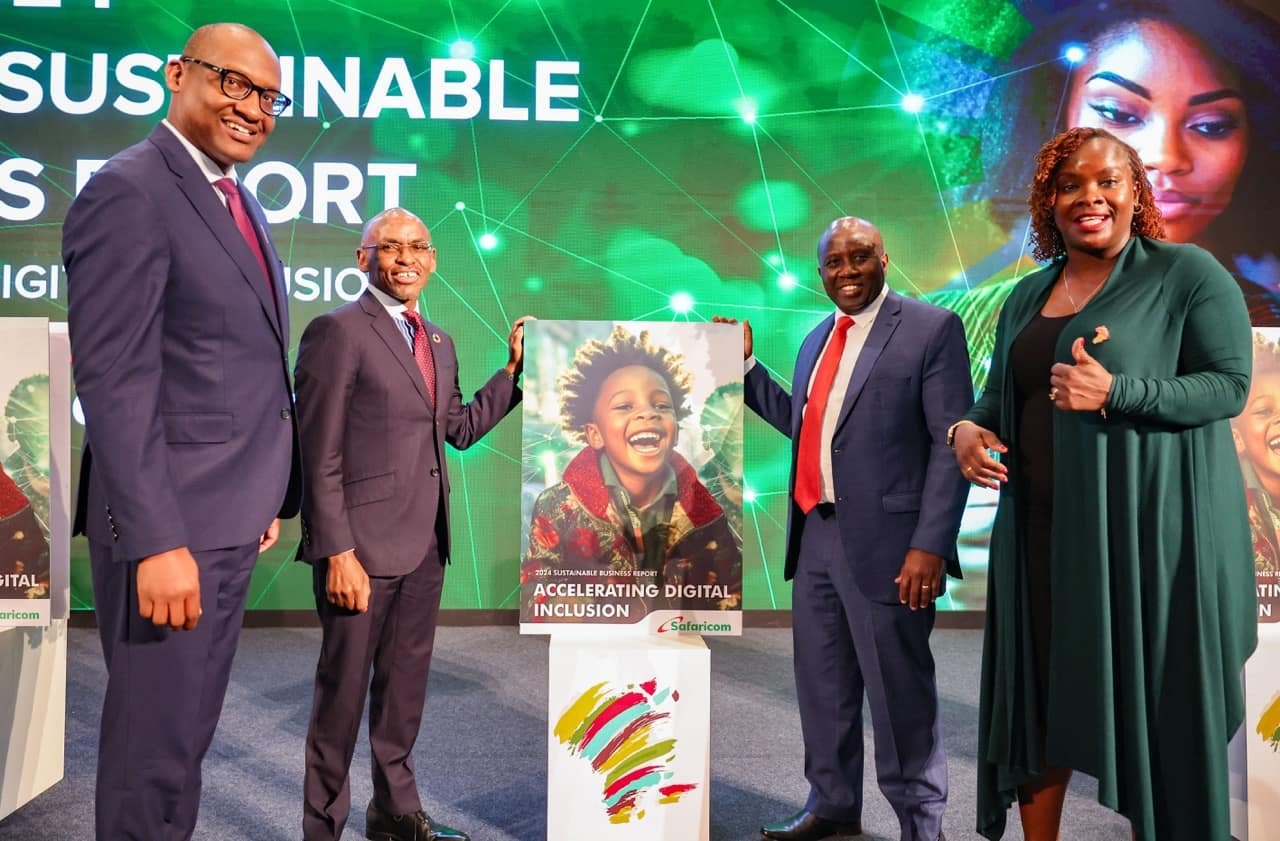Safaricom, Kenya’s largest telecommunications company, is celebrating 24 years of operation and impact. As part of this milestone, the company released its 13th Sustainable Business Report, which emphasizes a significant economic contribution of KES 983 billion to Kenya’s economy and highlights its support of over 1.28 million jobs. This year’s report, themed “Accelerating Digital Inclusion,” reflects on Safaricom’s journey and the steps it is taking to evolve into a technology-focused company by 2030.
Since its founding in 2000, Safaricom has consistently shaped Kenya’s telecom landscape, and this anniversary marks a period of reflection on the company’s broader role in society. The report showcases how Safaricom’s operations, including M-PESA’s contributions to financial inclusion, its work toward sustainable development, and social impact initiatives, have impacted millions across Kenya and, more recently, Ethiopia.
Economic Impact and M-PESA’s Expanding Role
In its 24th year, Safaricom’s economic influence remains substantial. The company generated KES 983 billion in economic value through its business activities, and M-PESA, its mobile money service, contributed KES 348 billion in social value. M-PESA has expanded from a mobile payment tool to a system facilitating savings, lending, and wealth management, underscoring Safaricom’s enduring commitment to digital and financial inclusion.
According to the report, Safaricom generated KES 562.2 billion in economic value through its various business operations, with much of this resulting from local investments, business partnerships, and value chain interactions that involve hundreds of local businesses. As mobile money use becomes more widespread, M-PESA’s influence extends beyond individual users, creating a vast network of agents and business dealers who also benefit economically from the service.

Progress in Gender Parity and Inclusivity
The report highlights Safaricom’s initiatives toward gender parity within its workforce. Female representation in senior management positions now stands at 42.4%, a notable increase considering the traditionally male-dominated landscape of the technology industry. Safaricom’s target is to reach an equal gender balance by 2025, emphasizing a goal that aligns with Sustainable Development Goal (SDG) targets.
In line with its inclusive employment objectives, the company has also increased the representation of people with disabilities to 3.2% of its workforce, aiming to integrate diverse communities into its operations.
Sustainable Development Goals (SDGs) and Environmental Action
Safaricom has adopted nine of the United Nations’ 17 Sustainable Development Goals, reflecting its commitment to broader societal impact. Through these SDG commitments, the company undertakes various community projects, particularly those tied to climate action and energy transformation.
One of Safaricom’s more notable environmental initiatives involves powering 1,400 of its telecommunications sites with solar or hybrid energy systems. This approach aims to reduce dependence on traditional power sources and aligns with the company’s long-term environmental goals, including a net-zero carbon emission target by 2050. This goal is ambitious yet grounded in Safaricom’s current environmental initiatives, including waste reduction programs that have successfully recycled 290 tonnes of electronic waste.
In Ethiopia, Safaricom’s entry strategy included renewable energy projects, with 84 sites powered by solar energy and others connected to a grid reliant on renewable sources. Additionally, the company has participated in the Green Legacy project, planting 4,500 trees to contribute to reforestation and reduce carbon emissions.
Infrastructure Expansion and Digital Inclusion Efforts
Safaricom’s infrastructure growth has continued, with 5G technology now available in 43 out of Kenya’s 47 counties. The expansion of 5G underscores Safaricom’s intention to support both urban and rural connectivity, a cornerstone for the digital economy. Increased connectivity through this infrastructure lays the foundation for expanding digital services, including e-commerce, telemedicine, and online education, particularly in remote areas.
Safaricom’s plans for digital inclusion go beyond connectivity alone. With the recent establishment of funds such as the Hustler Fund and Women Enterprise Fund, the company is enabling access to affordable loans and financial services to over 22 million Kenyans. These funds offer small business owners and women entrepreneurs an opportunity to obtain credit, which is often challenging to access through traditional banking institutions.
Ethical Lending and Financial Commitment
Safaricom also secured a Sustainability-Linked Loan (SLL) of KES 15 billion from a consortium of banks, including Standard Chartered, KCB, Stanbic, and Absa. This financing is specifically targeted toward projects that drive gender diversity, social equality, and environmental goals. The SLL reflects the company’s efforts to align its financing strategies with sustainable development principles, a move that is relatively new in the East African corporate landscape.
Expansion and Challenges in Ethiopia
Since entering the Ethiopian market, Safaricom has quickly established itself with a customer base of 4.5 million users. In a market known for its regulatory challenges, Safaricom has been able to connect 38% of Ethiopia’s population to its services, although expanding mobile money services remains complex due to ongoing regulatory requirements.
With a 23% female representation in its Ethiopian senior leadership, Safaricom is gradually instilling similar principles of diversity and inclusion across borders. Moreover, partnerships with local enterprises, such as Teki Paper Bags, enable employment opportunities for women with disabilities, reflecting a commitment to inclusive business practices beyond Kenya.
Evolution from Telecommunications to Technology Company
Safaricom’s Sustainable Business Report signals a clear shift in the company’s identity. Peter Ndegwa, Safaricom’s CEO, explained that the company’s direction is increasingly aligned with technology and digital services rather than traditional telecommunications. This evolution into a TechCo by 2030 will involve leveraging technology to support broader societal and environmental goals, such as reducing carbon emissions and providing innovative digital services to underserved communities.
Ndegwa highlights the company’s vision as purpose-led, aiming to transform lives by prioritizing purpose over profit. In Safaricom’s view, this approach will lead to sustained customer and community engagement, as well as a competitive edge in a rapidly changing digital landscape.

Long Road to Sustainability and Digital Inclusion
Safaricom’s report also addresses its long-term goals to maintain momentum in digital inclusion, economic contribution, and environmental stewardship. The telco’s role as a connector—bridging individuals, small businesses, and communities – is apparent in its extensive service network and digital financial infrastructure. Yet, achieving net-zero carbon emissions by 2050 and ensuring 50% gender parity in senior management within the next two years are ambitious targets that will require continued investment and operational adjustments.
The company’s efforts reflect a broader industry trend where telecoms are transitioning into tech companies. Safaricom’s case, particularly with its robust infrastructure and social projects, provides an interesting model for other companies with similar aspirations. However, realizing these goals while maintaining economic contributions, financial stability, and broad public engagement remains a significant challenge.
Conclusion
Safaricom’s Sustainable Business Report underscores its transformation from a telecommunications company to a purpose-driven technology company. While the company’s initiatives, such as the Hustler Fund, renewable energy projects, and 5G expansion, indicate progress, they also bring challenges and set high expectations. The report reveals a commitment to community and environmental well-being, with ambitious goals for gender equality, carbon neutrality, and digital inclusion.
As Safaricom pushes toward its 2030 vision, the telco’s ability to deliver on these promises will ultimately determine its legacy in Kenya and beyond. Safaricom’s story exemplifies the complex journey of a company navigating economic impact, societal expectations, and sustainability goals in a landscape where technology plays an increasingly central role.






